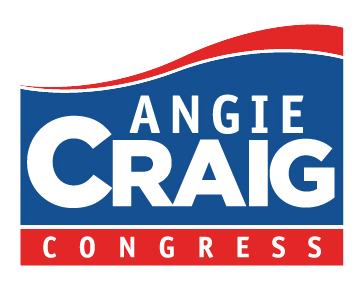By: Tad Johnson
3/3/20
U.S. Rep. Angie Craig, D-Eagan, had her bill, the Payment Integrity Information Act of 2019, signed into law by President Donald Trump on Monday.
Craig said in a press release that the bill delivers on her promise to fight for all Minnesotans by protecting their hard-earned taxpayer dollars. The bill had support of Reps. Mark Meadows, R-North Carolina; Cheri Bustos, D-Illinois, and Greg Gianforte, R-Montana.
“I’m honored to have authored the commonsense Payment Integrity Information Act of 2019, cutting through politics as usual and reforming the government’s oversight of taxpayer dollars,” Craig said. “When I came to Congress, I promised I would work across the aisle and seek to reform the way government works. By tackling this waste, we can make room to fund important priorities like special education, fixing our crumbling infrastructure and start to slow the rise our debt and deficits.”
In fiscal year 2018, the Government Accountability Office estimated that improper payments throughout the federal government totaled over $151 billion. Since 2003, when agencies were first directed to begin reporting improper payments, cumulative improper payment estimates across government have totaled over $1.4 trillion.
The Payment Integrity Information Act will:
• Require agencies to undertake additional efforts and develop plans to prevent improper payments before they happen.
• Improve the way agencies identify programs with the highest risk of improper payments.
• Require the Office of Management and Budget and the Council of Inspectors General on Integrity and Efficiency to issue guidance to improve annual reporting on agencies’ compliance with improper payment statutes.
• Create a working group that will enable federal agencies to collaborate with each other and non-federal, such as state governments, to develop strategies for addressing key drivers of improper payments, such as fraud and eligibility determinations in state-managed federal benefits programs.
The bill passed the House and Senate with bipartisan support.
